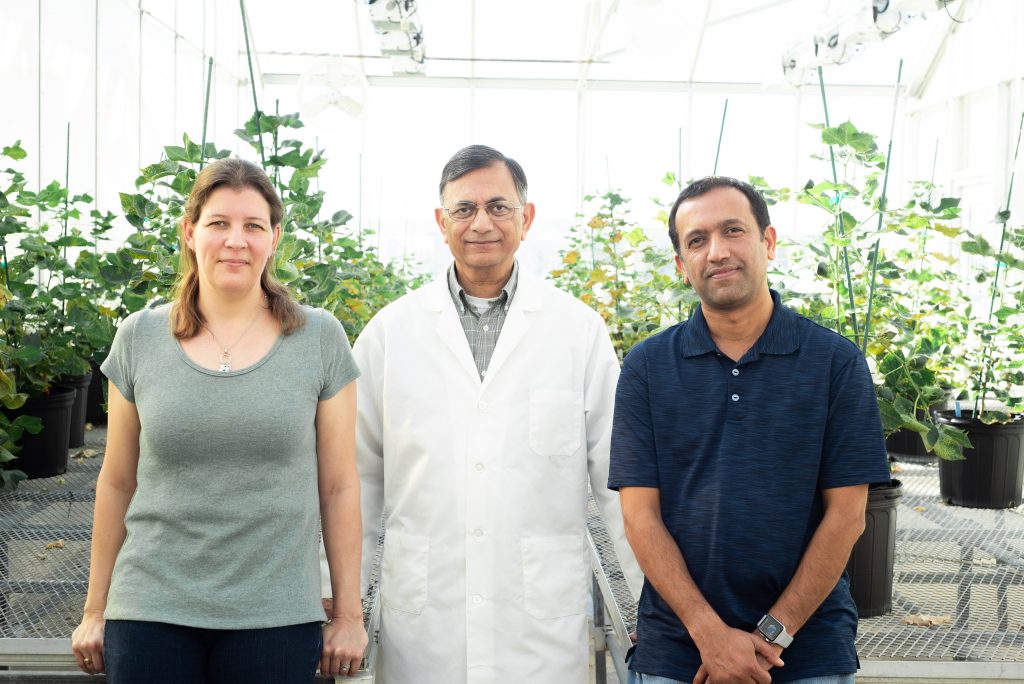
GE Cotton Could Help Improve Food Security
February 23, 2022| |
Using cottonseed as food has been an unmet target of many plant breeders until Texas A&M University professor, Dr. Keerti Rathore, successfully developed gossypol-free cottonseed. This breakthrough has the potential to significantly contribute to global food security.
According to an e-book released by Scientia, over 20 million farmers worldwide depend on cotton for their livelihood. However, for every 1 kilogram of fiber produced, 1.65 kilograms of cottonseed mostly goes to waste because it contains a natural toxic compound called gossypol. Cotton plants produce gossypol as natural protection from microbial infections and insect pests. Even humans and other animals react to high concentrations of gossypol, which can cause organ damage and blood disorders. Through processing of cottonseed oil, gossypol can be removed and used for frying and baking. However, its abundant protein can only be used for cattle feed.
Dr. Rathore and his team used genetic engineering (GE) to hinder the production of gossypol in cottonseed. Using RNA interference, they were able to silence the genes involved in the production of gossypol. Known as ‘Ultra-Low Gossypol Cottonseed' (ULGCS), the cotton trait has been approved by the US Food and Drug Administration for human food and animal feed in 2019. Its low production cost and high-quality protein make ULGCS one of the promising tools to combat global hunger and malnutrition.
Download the e-book from Scientia for more information about ULGCS.| |
You might also like:
- FDA Approves Texas A&M's Ultra-Low Gossypol Cotton for Human and Animal Consumption
- Selective Gene Silencing Leads to Ultra-low Gossypol Cottonseed
- Trending News on Crop Biotech in 2019
Biotech Updates is a weekly newsletter of ISAAA, a not-for-profit organization. It is distributed for free to over 22,000 subscribers worldwide to inform them about the key developments in biosciences, especially in biotechnology. Your support will help us in our mission to feed the world with knowledge. You can help by donating as little as $10.
-
See more articles:
-
News from Around the World
- Entomologist Shares Impact of Bt Brinjal in Bangladesh
- Nebraska-led Project to Empower Youth on Agricultural and Scientific Innovations
- GE Cotton Could Help Improve Food Security
- Scientists Create CROPSR, A Tool to Accelerate Genetic Discoveries
- Researchers Develop Plants with Improved Oxylipin Production Using Transgenic Techniques
- Rothamsted Research Scientists Engineer Plant to Replace Fossil Fuels as Source of Key Industrial Compounds
-
Research Highlights
- Biosafety Evaluation Concludes GM Cotton Not Harmful to Rats
- Analysis of Root Systems Genes Helps Identify Candidate Genes for Water Stress Adaptation in Rice
-
Read the latest: - Biotech Updates (February 11, 2026)
- Gene Editing Supplement (January 28, 2026)
- Gene Drive Supplement (February 22, 2023)
-
Subscribe to BU: - Share
- Tweet

